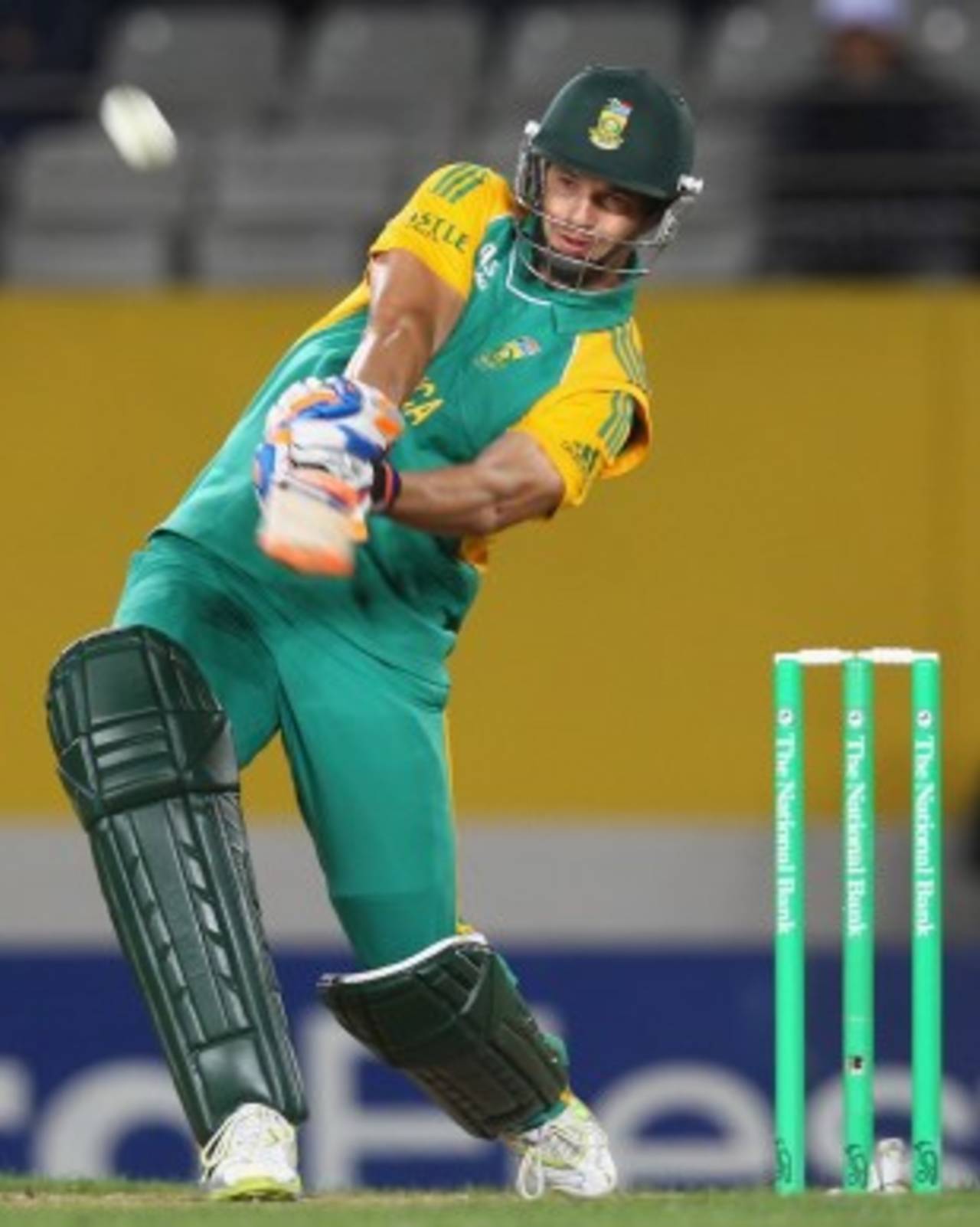Why isn't Albie's potential being maximised?
South Africa's use of the world's most experienced Twenty20 cricketer continues to baffle. Amid the third consecutive thrilling climax of the World T20, Albie Morkel cut a forlorn figure in field
Aashish Pattani
25-Feb-2013

Albie Morkel hasn't had enough opportunities with the bat in T20 internationals • Getty Images
South Africa's use of the world's most experienced Twenty20 cricketer continues to baffle. Amid the third consecutive thrilling climax of the World T20, Albie Morkel cut a forlorn figure in field. Brought back into the attack in favour of Johan Botha and JP Duminy - who had conceded 15 runs from a combined four overs - Albie conceded 20 in seven balls to Umar Gul and Umar Akmal that allowed Pakistan back into a contest they went on to claim.
Albie's contribution to the match - two overs for 26 runs, 9 off 6 with the bat, and a catch in the deep - hinted at a man who had not been an influential figure in the game. But sadly, it has too often been the case for someone who is the world's first to reach 200 T20 appearances. Albie is also the second-most capped South African T20I player (he has played 41 games, only one fewer than his captain AB de Villiers). And yet, his near omnipresence on the team-sheet has been counterbalanced with near indifference when it comes to match contributions.
In T20Is, he has been Man of the Match just twice - far less than similar players in other sides. By contrast, Shane Watson and Shahid Afridi have both picked up seven such awards. But it's not his fault. Much of his lack of impact is due, arguably, to the South African management's insistence to hold him back from the action. Their use of Albie the batsman is puzzling. Here's a man who has the highest strike-rate (142.33) of any South African to play more than 15 matches, and has cleared the ropes 151 times in T20s - 53 more than the next best in the squad (JP Duminy). And yet, he has faced a mere 359 balls in 41 games. That is, on an average, around nine balls per game. Rarely has he been given the opportunity to spend time at the crease. On only four occasions has he faced more than three overs.
And despite performing admirably when he has - passing 35 on each occasion - he's too often been forced to wallow lower down the order. His strike-rate has actually declined the lower he has come in, falling from over 160 batting at No.5, to below 130 batting at No.8.
Given this history it was a shame - but by no means a surprise - to see him walk to the crease with just 2.4 overs remaining in the South African innings against Pakistan. But for all South Africa's talk of using Albie as an impact player, it is hard to argue that leaving him so late - behind even Farhaan Behardien, who is statistically inferior to Albie in every aspect of batting - was in the best interests of the team.
Albie the bowler has proved no less frustrating. Given his bowling pedigree outside the international stage, possessing an economy rate hovering around 8, it is not surprising that his opportunities have been limited with the ball. But he has bowled just 92 overs in his T20I career.
He's also bowled more balls (551) than he has faced (359), despite having poorer returns as a bowler (economy 7.99) than as a batsman (strike rate 142.33). But as a bowler, he's only completed his full quota nine times.
On most occasions he has been asked to bowl two overs or less of his quota, and hasn't picked up more than a couple of wickets in an innings. Outwardly, Albie doesn't seem too fazed. Now into his 30s, evidently personally and financially secure as a cricketer, he rarely appears agitated at his lack of opportunities for his national team. Indeed, the fact that he has been such a regular selection for the South African team would provide him comfort that the management is at least cognizant of his abilities as a cricketer. But in the interest of getting the most out of his talent for the benefit of the team, the management must let him face more balls. Hashim Amla faced many more than that (529) in a single innings against England just a couple of months ago.
Given South Africa have suppressed Albie's impact for song long, it is unlikely they will change track. So even if they lift their first global trophy next Sunday in Colombo, we can fully expect Albie to pick up his medal despite being no more than a bit-part player.